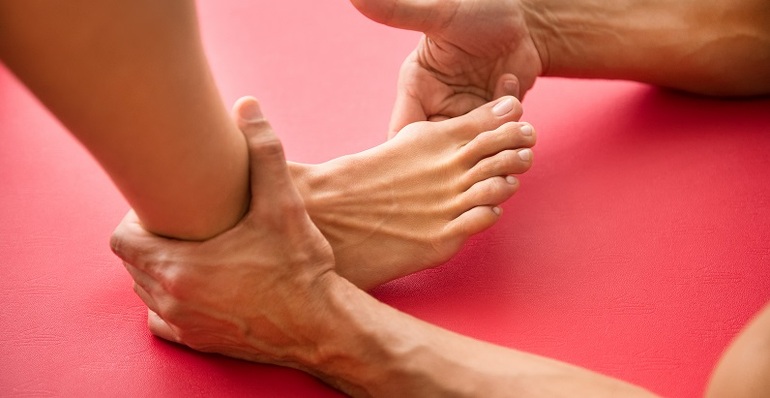The Centers for Advanced Orthopaedics is redefining the way musculoskeletal care is delivered across the region with locations throughout Maryland, DC, Virginia and Pennsylvania.
Are Bunions A Hereditary Problem?

There are plenty of genetic traits that we inherit from are parents that we are less than thrilled about. Maybe you have your father’s receding hairline or your short legs from your mother. We get a collection of traits from our parents, both good and bad, but could they also pass down a predisposition for bunion formation? We take a closer look at whether or not bunions are hereditary and what you can do if bunions run in your family.
Are Bunions Passed Down From Generations?
If your mother or father have been plagued by bunions, you’re probably wondering if you’re at a higher risk for developing the condition down the road. The answer is both yes and no. Yes because there does appear to be some genetic factors at play when it comes to bunion formation, and no because you do still have some control when it comes to preventing bunions even if your parents and grandparents suffered from bunions. First, let’s start with analyzing the familiar connection between bunion onset.
Bunions develop because forces cause the big toe joint to become unstable. One of the most common causes of this instability is from ill-fitting shoes that put abnormal stress on the joint, but another cause is from our natural foot shape. Some people have high arches, flat feet, or an in-toeing or out-toeing gait. Every foot shape is different, but odds are your shape resembles the shape of your parent’s feet. If their natural foot shape and gait placed abnormal stress on their big toe joint when they walked, it may have played a role in the onset of their bunion. So if you’ve inherited their feet, you may also be at risk for bunion development based on how weight and stress is dispersed through your feet.
On the flip side, recognizing this potential connection is also a giant step forward in helping to prevent the eventual onset of bunions. Regardless of whether or not you’re predisposed to bunion formation based on foot shape or gait style, knowing that these risk factors exist and can be mitigated will help prevent you from developing bunions just like your ancestors. You can help prevent bunion formation by:
- Wearing appropriate footwear
- Considering orthopedic inserts to prevent overstressing certain areas of your feet
- Maintaining a healthy weight
- Regularly exercising and strengthening your ankles, feet and toes
- Keeping a close eye on any physical changes to your feet, especially around the big toe joint.
Treating Bunions
If you spot a bunion early in its development, it is much easier to fully treat. Many patients can find symptom relief with conservative care, which allows them to avoid surgery. Dr. Neufeld and his team would be more than happy to walk you through some conservative care options to help you prevent the bunion from growing in size.
If the bunion is in a later stage, we can share some more hands-on treatment options. We can perform a minimally invasive corrective procedure to remove the bony prominence and restabilize the big toe joint, which will have you back on your feet in no time. Prevention is preferred to treatment, but it’s nice to know that our experienced team of surgeons can find the right solution for your bunion.
So if bunions run in your family, be a little more aware of the prevention tips, and set up an appointment with Dr. Neufeld as soon as you notice an issue so we can stop the bunion in its tracks. For more information, contact our office today.